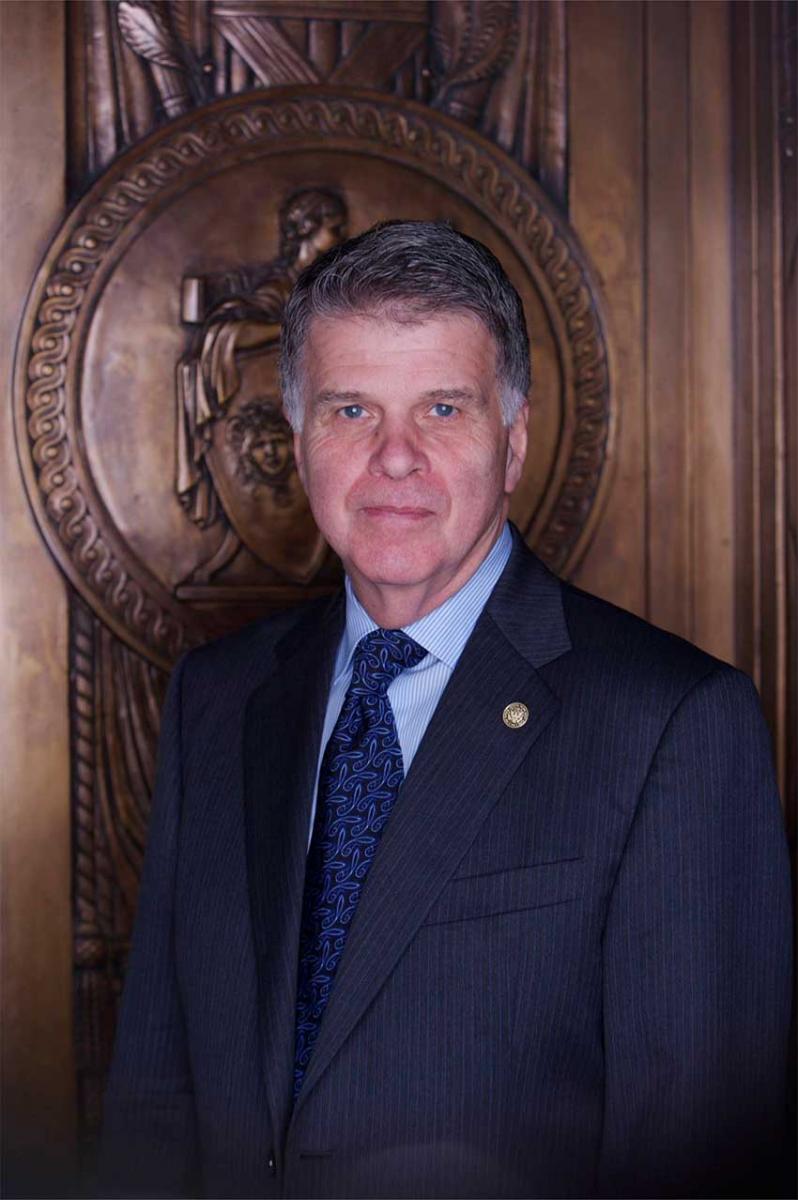
Prepared Remarks of Archivist of the United States David S. Ferriero at a National Archives Assembly panel discussion on the need for an agency historian
October 26, 2010
Good morning, I’m David Ferriero, the Archivist of the United States, and welcome to the 14th annual Archives Fair!
The theme for this year’s event is “Preserving Our History through Archives.”
I want to recognize the sponsors of this fair – our own National Archives Assembly and the DC and Maryland Caucus of the Mid-Atlantic Regional Archives Conference.
And I want to thank Rick Peuser for organizing today’s panel discussion, Quinn Bruster for coordinating this morning’s breakfast, and Amy Lubick for putting all of today’s event together so successfully – let’s give them a round of applause…
The promotional flyer for this fair states that we are "connecting with regional archivists and archival repositories as we celebrate Archives Month by sharing information about our diverse collections."
It is good to see so many members of the National Archives staff in attendance today as well as guests from other archival institutions.
After this morning’s panel discussion I encourage you to go to the lobby and visit the representatives from government, academic, and cultural archival organizations. Whether the topic is jazz music, space travel, or medicine, you can make contact with many groups at their respective booths. This is an excellent opportunity to network and learn.
The topic for this morning’s panel is: "The Diverse Role of the Agency Historian." Founded on June 19, 1934, the National Archives began with one building in Washington DC and a handful of staff. The first Archivist of the United States, R.D.W. Connor, was a noted historian at the University of North Carolina at Chapel Hill, when he was recommended to President Franklin D. Roosevelt as the right man for the job.
Over the years we’ve grown to include the Federal Register, NHPRC, records centers, regional archives, and Presidential libraries. We are the nation’s record keeper, and billions of documents created by federal officials are housed in our facilities nationwide.
For 76 years we have chronicled the history of this nation by preserving the permanently valuable records of this government. Along the way, this agency and its staff were part of seminal events as:
The creation of the first presidential library by Franklin Roosevelt in 1941.
The delivery of the Declaration of Independence and the Constitution to the National Archives in 1952.
The fire at the National Personnel Records Center in St. Louis in 1973.
The independence of the National Archives from GSA on April 1, 1985.
We have hosted Presidents of the United States, kings, and prime ministers; we’ve had descendants of Henry Ford, Theodore Roosevelt,
These events shaped this organization and its policies. These moments are preserved in the Records of the National Archives and in other record groups.
Just yesterday I received a letter from a widow interested in donating her husband’s personal papers directly related to his work with National Historical Publications Commission. As my staff and I worked on a reply we realized that an Agency Historian would be useful in this situation.
It was historians who worked to convince the Congress of the need for a National Archives, then helped launch the new agency in the midst of the Great Depression. This agency is populated with archivist, librarians, technicians, and conservators but there is no job titled Agency Historian of the National Archives. It is a privilege to host today’s panel discussion and I look forward to hearing what you have to say on this topic.
Now, I’d like to introduce our panel.
Peter Daniel is retired from the National Museum of American History and is current president of the Society for History in the Federal Government. He has written six books and many articles and has also served as president of the Organization of American Historians and other professional groups.
Judy Koucky had a 31-year career at NARA and worked in a variety of positions, including ones involving military and classified presidential records as well as NARA’s own agency records. And she just completed her fourth year as a volunteer, putting her “institutional memory” to good use.
Richard McCulley is the historian at the Center for Legislative Archives here at NARA. He received his doctorate in American history at the University of Texas at Austin and is author, co-author or editor of three books on modern American history. He is a former president of the Society for History in the Federal Government.
Mike Reis is Vice President for Litigation Research at History Associates, a historical services firm specializing in archival research at NARA and elsewhere. He is immediate past president of the Society for History in the Federal Government.
Donald Steury is on the CIA’s declassification team working at the National Declassification Center here at NARA. For 15 years, he was on the CIA history staff, where he focused on intelligence during the Cold War. He also is a past president of the Society for History in the Federal Government, and holds a doctorate in modern European history from the University of California.
Lee White is Executive Director of the National Coalition for History, a consortium of more than 50 organizations that advocates on federal legislative and regulatory issues affecting historians, archivists, teachers, researchers, and other stakeholders. He is an attorney with more than 30 years experience in government relations. He holds a law degree from Catholic University and a master’s degree in history from George Mason University.
The panel discussion followed, then the Archivist said:
I think this discussion has enlightened us all, so thanks for coming, and enjoy the rest of the Fair.
 The Archivist of the United States is the head of our agency, appointed by the President of the United States.
The Archivist of the United States is the head of our agency, appointed by the President of the United States.